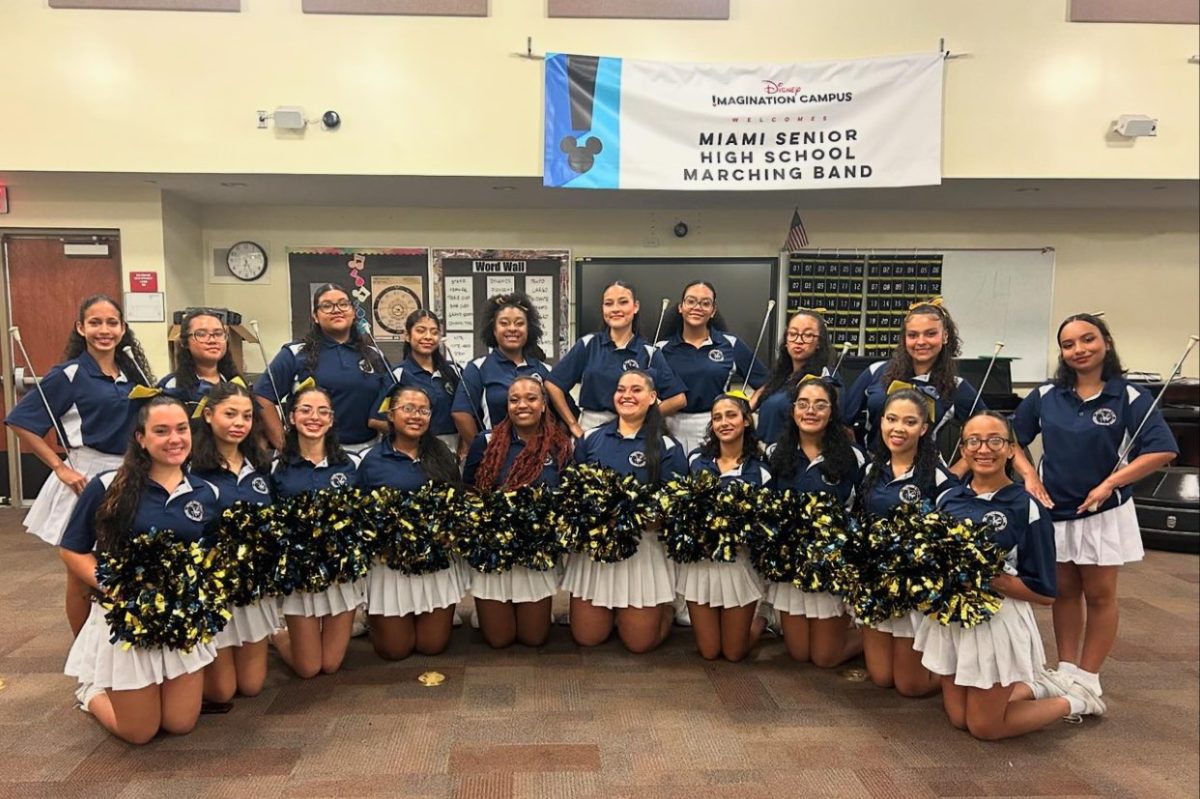One Shot to Get it Write!
March 30, 2017

It is the time of the year when students begin to realize that ‘testing season’ is upon them. Attending school every day and studying becomes more important than ever during this time. The FSA Writing Exam is taken by 9th and 10th grade students around Florida. These students are given 120 minutes to read up to three source articles and write an essay about specified topics.
Much like last year, the FSA Writing exam began in early March. Towards the end of the school year, students will be able to know their scores.
Getting Ready
MHS 9th and 10th grade English teachers have been preparing their students for the test. Ms. Delicata said, “We have worked on outlining an essay, using great transition words, and attacking the test with a purpose.”
Ms. Berrios said, “My students and I have been talking about writing since October. They’ve also had multiple chances to practice.”
Some teachers admit that it is challenging to prepare all students for the test. Ms. Davalyn Suarez said, “Writing is a process so there’s never enough time, but we have used as much time as possible to prepare.” Ms. Rodgers said, “The reality is that an hour and thirty minutes leaves little room to cover everything.”
Passing the FSA
Miami High’s average test scores have done nothing but grow. “Last year, 42% (About 588) of 9th and 10th graders passed the FSA Writing,” said assistant principal Ms. Leal. “Here in Miami High we never fall in scores; we only keep increasing compared to the rest of Miami Dade Public Schools.”
Ms. Leal believes that this year’s writing exam will have a higher passing rate compared to last year. “We have implemented more tutoring and also have used more programs such as Reading Plus,” she said. “Teachers have also been teaching more one-on-one with their students.”
Teachers here at Miami High also feel very confident that their students will pass. “The students who put in significant effort will see that hard work pays off,” said English II teacher Ms. Delicata.
“I feel confident that my students will perform their best on the exam,” said Ms. Rodgers. “I trust that how hard we’ve been working will pay off.” Ms. Suarez added, “My students know enough, but they can always do better.”
Not every student, however, passes this exam. “Students who do not pass the writing exam in 9th or 10th grade will have to take a reading class the following year to ensure that they will pass the next time,” said Ms. Leal.
Teachers have advice for their students. “Trust yourself and spend some time planning before writing,” said Ms. Suarez.
Ms. Delicata said, “Don’t panic. Trust that your preparation will work.”
“Thy prompt is thy friend,” said Ms. Suarez, meaning is that the thesis is the most important part in an essay. “No thesis, no focus.”
“Read carefully. Pay close attention to what the question or prompt is asking,” said Ms. Rodgers.
Before the Exam
Before taking the FSA Writing Exam, some students were having mixed feelings. Tenth grader Valentina Figuera said, “I’m feeling very nervous about the exam,” while freshmen Thais Maradiaga said that she felt “confident and well-prepared.”
Students have different strategies to write well during the test. Sophomore Diana Solis said that she uses a planning sheet and ‘t-chart’ that was taught by her teacher, Ms. Delicata.
“I plan my essay in detail, make sure to answer all questions on the prompt, and edit my essay several times,” said 9th grader Daniela Banon.
Before testing, students often feel stressed. To keep calm, they make use of different tips. “I would have a good breakfast and full night sleep beforehand,” said 10th grader Nelson Pausa.
Isaac Meza, a freshman, said that his strategy to keep calm is to think of the test as a regular assignment. “Know that the test is less than you,” he states.
As testing for the FSA came closer, teachers began to prepare their students more and more. “I believe my teacher Ms. Fernandini prepared me well enough for the FSA Writing Exam because she took her time to teach us strategies on how to write and plan,” said freshmen Sebastian Portillo.
“Ms. Ransom did a good job preparing us for this exam,” said 10th grader Brandon Barrionuelo. “I have seen some noticeable differences in my writing, so yes, I believe I have improved.”
After the Exam
After the writing exam, students felt quite different about how they thought they would have performed versus how they actually did. “I’m sure I passed the Writing FSA,” said sophomore Kevin Severo.
Angel Posas, a 9th grader who was scared coming into the test, said, “After I read the prompt and relaxed, I believed in myself.”
While taking the exam, 9th grader Katherine Ramirez-Lopez, said, “I felt calm because I knew I was well prepared for the exam.”
On the other hand, 10th grader Sussan Diaz felt pressured. “I knew I was being timed, and I wasn’t sure whether I had enough time to complete the essay and revise,” she said.
Many tips that teachers gave their students were used. “I planned, wrote down notes, highlighted important information, read carefully, corrected my essay and finally checked if everything looked good,” said Sebastian Portillo, “exactly what Ms. Fernandini taught us.”
Freshmen Yariannis Vazquez said, “I did what my English teacher Ms. Suarez taught us to do in case we got stuck in the introduction: use general information that appealed to the readers of the essay.”
Some students like sophomore Charlees Mejia believed that the time given was enough to finish their essay. Others, however, believe their wasn’t enough time. “I feel that if I had 15 more minutes, I could have made my essay stronger,” said Sussan Diaz.




